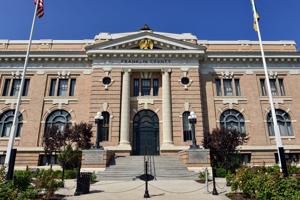Second county in Washington state bans income tax

(The Center Square) – Franklin County, east of Yakima, on Monday became the second county in Washington state to ban local income taxes.
It joins Yakima County and 11 cities in formally banning the levying of income taxes on businesses and workers.
Other municipalities taking the same position this year are: DuPont, Kennewick, Battle Ground, Granger, Longview, Moses Lake, Richland, Spokane, Spokane Valley, Union Gap and Yakima.
“Such a tax would be in direct conflict with the high value the county places on promoting economic development through the attraction and expansion of financially healthy, family-wage paying employers,” read the commissioners’ resolution. “Small businesses are the backbone of our local, regional, state and national economy and it is imperative the county not put unnecessary hurdles in the way of their success. As such, Franklin County prohibits the imposition of a local income tax in the event a local income tax is determined legal by the Washington Supreme Court or the Washington State Legislature.”
All but one of the cities and counties have adopted the measure on a vote by elected officials. Voters in the city of Yakima last week approved a charter amendment banning income taxes by a margin of 78-22%. In addition, 61% of voters recommended that legislators repeal a new capital gains tax in a statewide advisory vote.
At play here are two court cases.
The state Supreme Court in April of 2020 struck down an attempt by Seattle to impose an income tax on wealthy households. The city council there in 2017 approved a 2.25 percent tax on individuals earning more than $250,000 and couples earning more than $500,000.
Estimates showed the tax would bring in about $40 million a year for the city.
Both the King County Superior Court and the State Court of Appeals ruled against the tax and the Supreme Court declined the city’s request for a review. The main reason the tax was overturned is because income is considered property and the state constitution says property must be taxed evenly.
The Supreme Court did, however, let stand an appellate court decision last year that overturned a 1984 law banning taxes on net income.
That move opened the door for cities to impose a 1% flat tax on net income.
Douglas County Superior Court Judge Brian Huber last month ruled that a lawsuit challenging the state’s new capital gains tax can move forward.
Legislators earlier this year approved the law, to begin in 2022, that would impose a 7 percent tax on long-term capital gains in excess of $250,000 and is estimated to net the state $500 million annually. The outcome is expected to end up before the Supreme Court either way.
Disclaimer: This content is distributed by The Center Square

